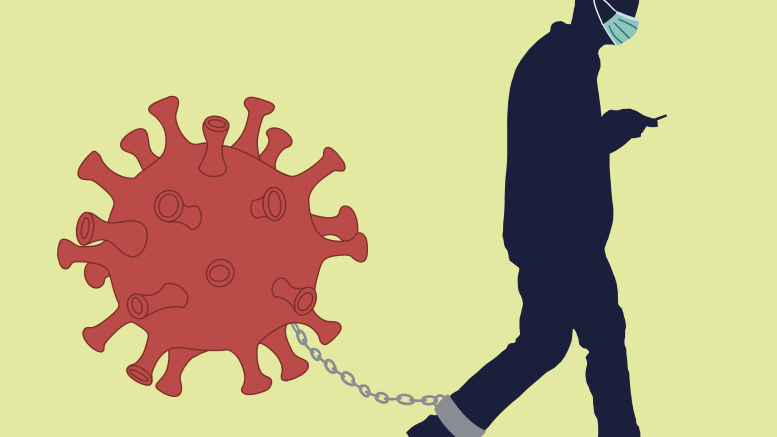Long COVID is a condition where symptoms persist for weeks, months or even years after recovering from COVID-19. The symptoms, including chronic pain, brain fog, shortness of breath, chest pain and severe fatigue, can be overwhelming and disabling.
Post-secondary students are especially at risk for repeated COVID-19 infections due to shared living environments (such as dorms and student housing) and frontline jobs (like waiting tables and working in retail). Transmission is further increased by the high level of social mixing, complex schedules and crowded spaces on campuses.
“As students, we rely on our health to succeed academically and socially,” said Ryan Tennant, a doctoral candidate in the University of Waterloo’s department of systems design engineering. “I strongly believe that if we don’t address these risks proactively, we’re compromising the potential of an entire generation to be successful in our academics and to contribute to society.”
With each COVID-19 reinfection, the risk of developing long COVID increases cumulatively. Tennant reported that according to Statistics Canada, infection with COVID-19 three or more times leads to a 38 per cent chance of suffering from the symptoms of long COVID.
“COVID-19 isn’t really just a short-term illness,” Tennant said. “COVID is a pleiotropic virus, and this means that it can impact multiple organ systems and leave lasting consequences on our health.”
Tennant emphasized the potential of long COVID causing mental health issues, with depression and anxiety being two of the disease’s most common symptoms.
“That’s something that really should be highlighted for students and considered in helping make sure that they get the best out of their education and can be successful after they graduate,” Tennant said. “That’s why I’m dedicated to making our campus safer and raising awareness.”
Tennant is involved in a variety of initiatives targeting COVID-19, including running workshops on building do-it-yourself air cleaners, which improves ventilation. He explained that the COVID-19 virus “floats in the air like smoke when people sneeze, cough, breathe, sing or speak.”
His work also includes securing carbon dioxide monitors, which are used to determine how well a space is ventilated with fresh outdoor air. These monitors are available for students to borrow from the University of Waterloo’s library, allowing them to assess the indoor air quality in lecture halls, dorms or homes. By doing so, students can determine if they need to open windows or notify building management to check the ventilation system.
Tennant’s advocacy work for better access to protective equipment resulted in free N95 respirator masks for the University of Waterloo students and faculty, which protect the wearer from infection by trapping viral and respiratory particles. Care kits including respirator masks, educational materials and awareness items such as stickers will also be put together. Following distribution of the kits, a silent walk around campus will take place in recognition of the “silent suffering” for those with long COVID.
Tennant is also engaged in education initiatives.
“In a teaching program that I’m involved with, I’m exploring a new framework about health inclusive learning, specifically in the context of infectious disease transmission,” Tennant said.
The framework is designed to “make learning environments safer and accessible to everyone, especially students with chronic illnesses or disabilities or other health risk factors, to kind of mitigate that risk of getting infected so they can thrive in the learning environment.
“It’s really about creating actionable change, from education to advocacy to keep students safe.”
He emphasized that though society has the tools to protect itself — including ventilation, masking and education — combatting long COVID requires a collective commitment.
Tennant echoed Tedros Adhanom Ghebreyesus, director-general of the World Health Organization’s message in a December 2024 news conference that COVID-19 remains a persistent threat, one which we “cannot talk about […] in the past tense.”
“As much as we want to forget it, it would really be to our detriment to do that,” Tennant said. “When we prioritize health and we create a safer and more inclusive campus, and even other public spaces for everyone, that’s really the legacy that we should be striving for as a society.”



